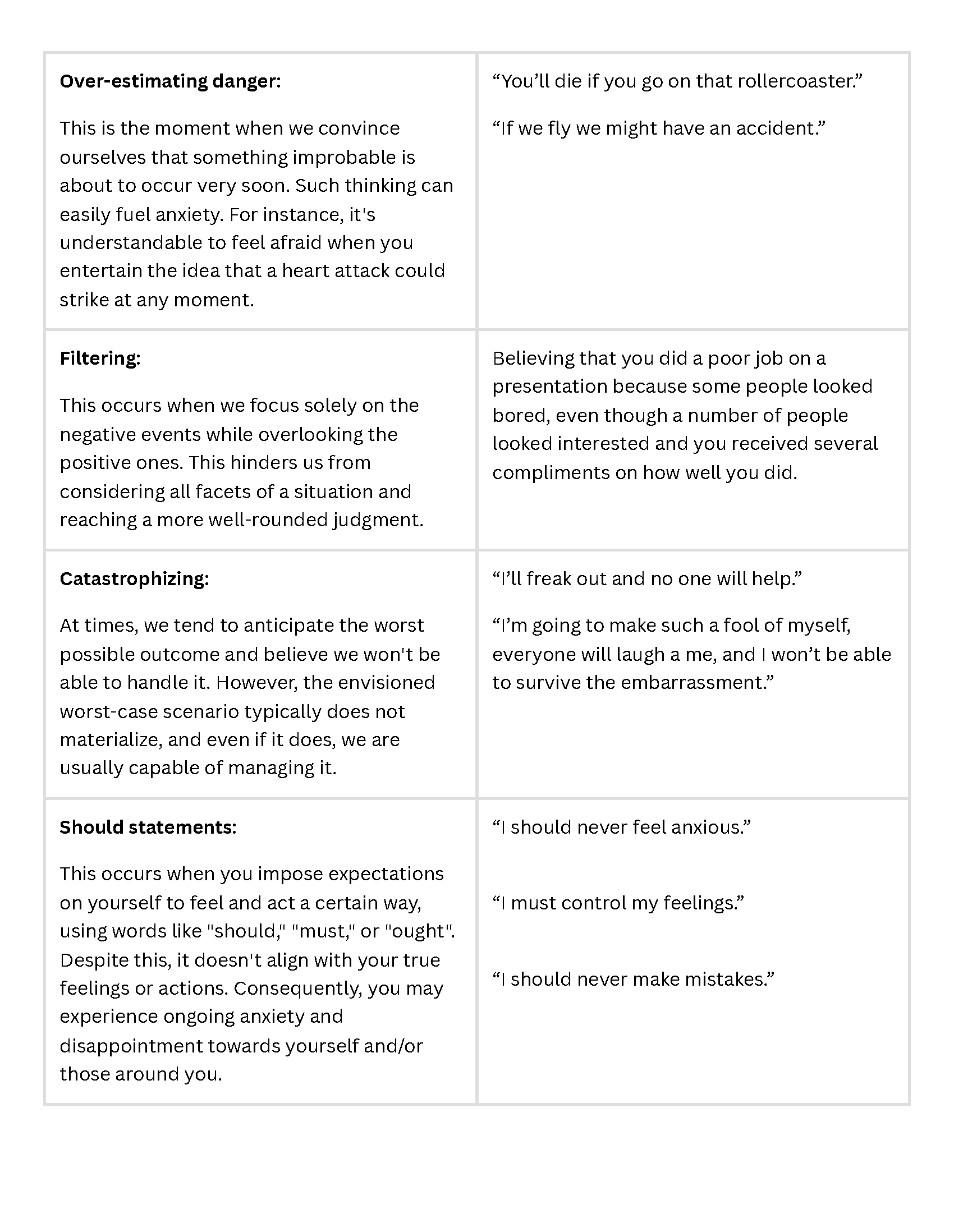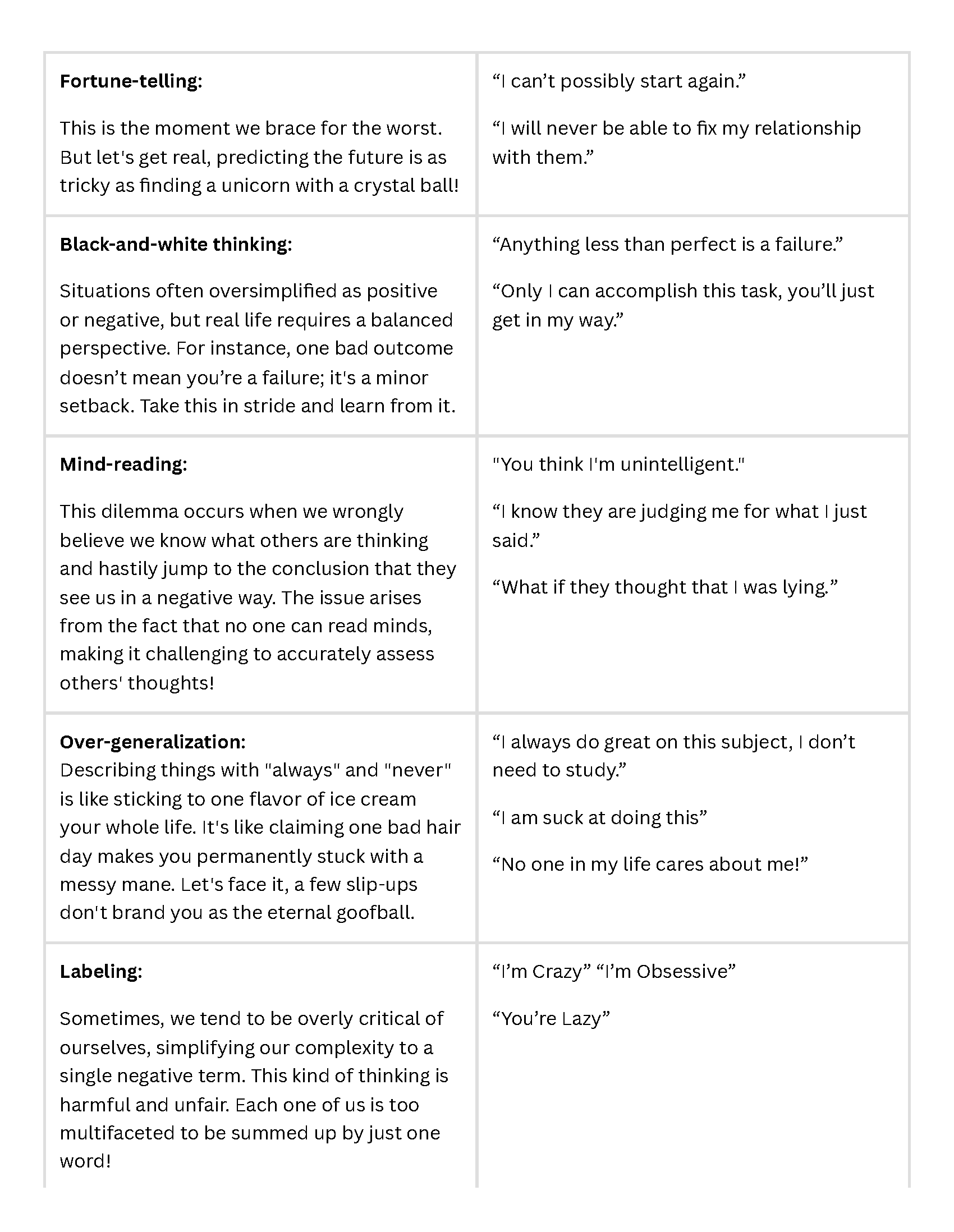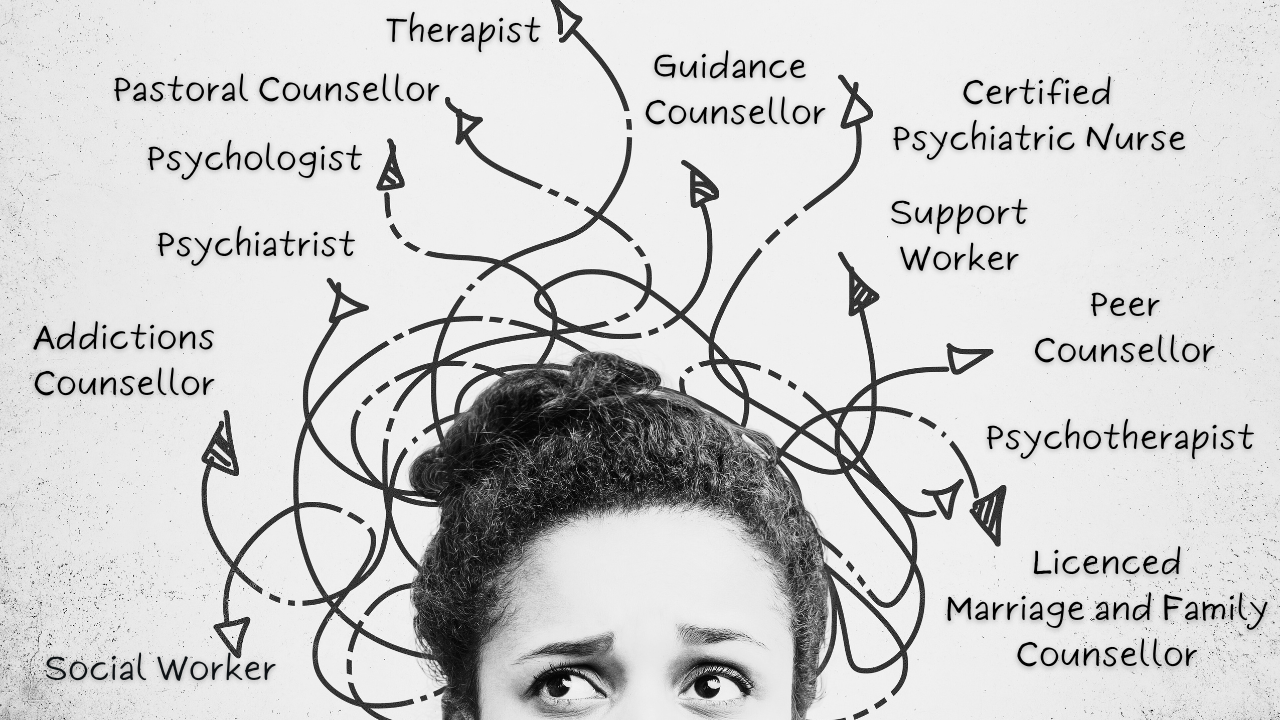
Getting Past Thinking Traps
Author: Teague Luhr / posted: 2024-03-15

Within our daily lives, it's common to fall into thinking traps that can hinder our ability to make clear, rational decisions. These traps can include cognitive biases, negative thought patterns, and limiting beliefs. However, by recognizing these traps and actively working to overcome them, we can free ourselves from their constraints and think more clearly.
A simple way to move past thinking traps is to practice mindfulness and self-awareness. By being present in the moment and observing our thoughts without judgment, we can identify when we are falling into a thinking trap and choose to redirect our thinking in a more constructive direction.
Another helpful strategy is to challenge our assumptions and beliefs. Often, our thinking traps are rooted in unexamined beliefs that may not be based on reality. By questioning these beliefs and seeking out evidence to support or refute them, we can gain a more accurate understanding of the situation.
Furthermore, seeking input from others can provide valuable perspectives that can help us break free from our thinking traps. By being open to different viewpoints and actively listening to feedback, we can broaden our thinking and consider new possibilities that we may have overlooked. Ultimately, by cultivating self-awareness, challenging our assumptions, and seeking diverse perspectives, we can enhance our ability to think past thinking traps and make more informed decisions in our lives.
Exploring methods to enhance your mental well-being? Check out these established therapies that can help, or explore our complimentary resources listed below:
- Cognitive Behavioural Therapy (CBT)
- Dialectical Behavioural Therapy (DBT)
- Accelerated Emotional Release Therapy (AERT)
- Solution Focused Brief Therapy (SFBT)
Book in with one of our practitioners today, Call: (204)-571-9122
Free Resources:
Sources:
https://www.apa.org/ptsd-guideline/patients-and-families/cognitive-behavioral
https://bc.cmha.ca/covid-19-take-care-of-yourself/challenge-thinking-traps/
https://www.apa.org/ptsd-guideline/patients-and-families/cognitive-behavioral
https://helpfulprofessor.com/cognitive-distortion-examples/
THINKING TRAPS
Thinking traps are also known as cognitive distortions.
“Cognitive distortions are irrational thought patterns that distort reality and lead to negative thinking, emotions, and behaviours.” - Chris Drew Phd.
Examples:







